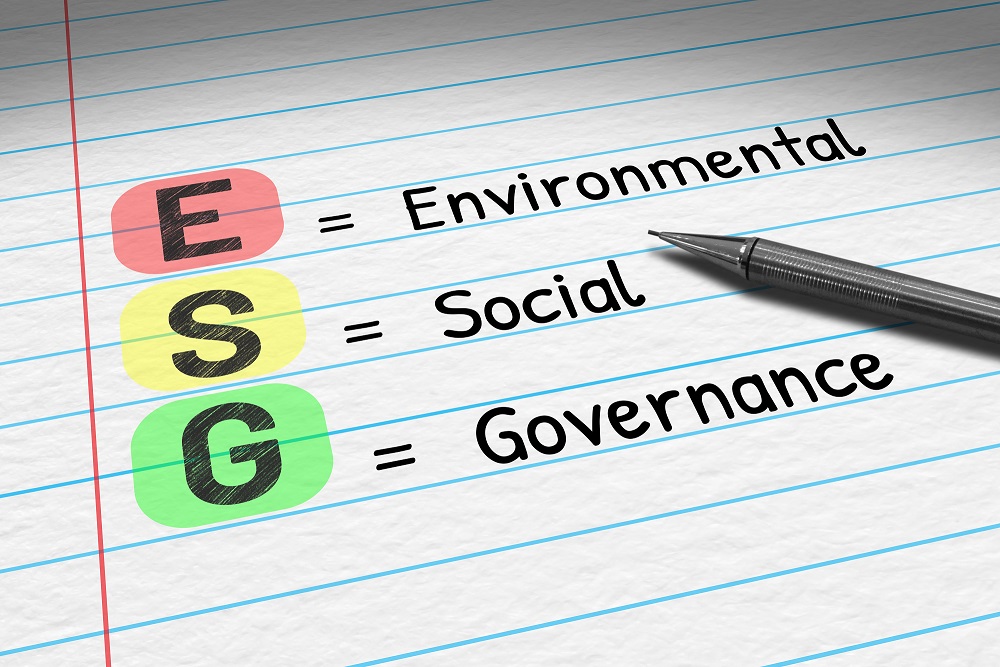Embedding sustainability in your business strategy
05 / 06 / 2023

Photo: Shutterstock
Have you done your ESG materiality assessment?
Sustainability pressures, as seen in the latest TIACA Air Cargo Sustainability Report, produced by Change Horizon annually, are ever increasing with 78% of customers, 69% of employees, and 62% of local communities and business partners asking for change.
The strategic necessity of sustainable business credentials is clear.
Pressure from regulators has increased the most over the past year and we can see it with new regulations affecting even the smallest businesses across the globe.
As just one example, the European CSRD regulation requests that large companies showcase their sustainability impacts and action through annual reporting, starting next year.
Small and medium-size companies will not be spared, with just a few more years available to prepare.
Business partners and clients, such as shippers or large freight forwarders, are asking for sustainability credentials as part of efforts to ensure their value chain is sustainable.
And this due diligence activity will only intensify, not only because of pressure from investors, but also laws, such as the upcoming European Corporate Due Diligence Directive.
As regulatory compliance and business opportunities are the key drivers for change, employer branding is a growing opportunity. Companies may consider sustainability credentials to help attract and retain the next generation of talent looking to work for a responsible business.
And as our industry has been facing staff shortages coupled with difficulty attracting younger employees to the sector, climate action, gender balance or business ethics commitments could prove a worthwhile investment for employers.
Set your priorities
For any company, no matter their sustainability maturity, size or resources, as well as the type of assets operated or business complexity, it all starts with identifying where its key sustainability-related risks, opportunities and key impacts on the world are.
To build an action plan that works, the key is to set the priorities through a so-called materiality assessment.
While the purely financial materiality focuses on issues or risks that could affect company’s bottom line, the ESG (Environmental, Social and Governance areas of sustainability) materiality includes non-financial risks, like climate change or social unrest, that could affect an organisation’s business sustainability.
The EU CSRD describes materiality as sustainability issues that might create financial risks for the company (financial materiality), but also as the company’s own impacts on people and the environment (impact materiality).
In today’s world, companies are also looking at how their operations affect the world, positively and negatively. This is called impact materiality and is often closely related to companies’ commitments to advance the UN Sustainable Development Goals and address human rights issues.
Impact materiality is an integral part and a requirement of the GRI reporting standards.
When coupled together, sustainability-related financial materiality and impact materiality form a so-called double materiality. And companies complying with the EU CSRD will be obliged to use it in their strategy and reporting.

Céline Hourcade. Photo: Change Horizon
Stakeholder feedback is vital
Although materiality assessment is an essential part of a sustainability strategy, making the process of issue prioritisation inclusive will ensure that a company’s ambition answers the expectations of its key stakeholders and fits well in the global air cargo industry and ESG landscape.
The identification of priorities starts with an analysis of industry sustainability impact. Benchmarking against peers is important to sense the overall direction relative to similar operations and business specificities.
But the most important part is collecting feedback from key internal and external stakeholders on their perception of where the company’s key risks and impacts reside.
While it is important to take into account diverse views of partners, clients, investors, governments, affected communities and employees, to name a few, it is better to start small and build over the years, if the company’s resources are scarce to start with.
Sustainability is a journey that is better to start with quick wins and concrete short-term plans, than wait until the stars align for that long term ambition that requires systemic change and a technological revolution at the global level.
Take action now
With material issues prioritised, the company sustainability ambition can drive a credible set of goals to address those issues with a concrete roadmap, a set of KPIs and a plan to track and communicate progress on a regular basis.
We know that electrification or SAF at scale are still not available today. But there are opportunities for decarbonisation to begin today at each company’s scale, whether through research and development partnerships, or optimisation or operations.
The opportunities in supporting the world’s economies and addressing human rights issues are there and at reach for even the smallest air cargo players.
Prioritising team diversity and inclusion or setting business ethics policies do not require large investment but will bring a strong business differentiation and improved employer image very quickly.
We can see that sustainable transformation of businesses in our industry is already taking place, but the road ahead is still long and windy.
The opportunity for companies to join the ranks of changemakers is still there.
The time for change is now and I invite companies to embark on their sustainable transformation journey.
Increasing pressure on air cargo to up its sustainability performance














